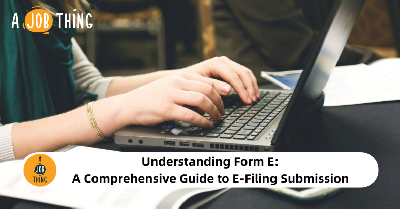
HR Guide: How to Effectively Review Resumes
Create Job Description Using AI
Write appealing job descriptions for any job opening to attract the most qualifield and suitable candidates. FOR FREE.
try now
If you are responsible for managing the recruitment process in your company, there are some things you should know when it comes to reviewing resumes. When you review resumes, there are some subtleties that you might miss if you're not thorough.
This article will help you review resumes thoroughly and quickly. You will be able to compare candidates fairly, spot red flags, and recognise potential diamonds in the rough. Here are the tips:
1. Finding the right candidates
As much as you are an expert at writing job descriptions, you will still need to review resumes from unqualified applicants because that's just how it is nowadays.
Create a checklist of the absolute minimum skills, experience and education required to do the job, and use this as a framework to easily sort the resumes into piles of yes, no and maybe. And that's how you filter resumes.
At AJobThing, we have a unique recruitment platform where we simplify the hiring process and recommend qualified candidates for your open position. Register here (for free!) and find out more!
2. The red flags
As usual, resumes have warning signs that might tell you that certain candidates are problematic. Here are the biggest red flags to look for when you review resumes:
- Unexplained unemployment gaps - Some candidates have long breaks between jobs. There could be a reasonable explanation behind it (read more about it here), any serious candidate should be prepared to explain these gaps in an interview.
- Too much job-hopping - Younger people tend to switch jobs a lot these days. But if they skip over too many employers in a very short time, that could be a problem with commitment.
- Static career - It's not a good sign if a candidate is stuck with a series of jobs without any increase in responsibility as it indicates a lack of career direction or drive.
- Careless mistakes - Resumes should not contain typos. Candidates who apply with messy resumes show a lack of attention to detail.
- Irrelevant information - An interesting hobby requiring relevant skills could make a candidate stand out. But, resumes that focus too much on personal interests indicate the job seeker views their career as a side activity.

If you accept a lot of resumes, you might want to review them again.
3. Tossing out generic resumes
Some resumes might pass first inspection but might not impress you as you read into it. If the resume and cover letter look generic, it's probably because the candidate sends the same exact document to multiple employers
A serious candidate would customise their resumes, emphasise their skills and qualifications that are most relevant to the job ad you posted. Look out for these candidates.
4. Words mean everything
Some applicants use vague words to hide the fact that they are lacking experience or knowledge. Phrases such as “familiar with” and “participated in” can leave you with more questions than answers.
Just because they say they were a "part of" of a project may have played a key role in the effort or just took up space in meetings. Also, look out for buzzwords that candidates use to sound smart but may cover up a lack of expertise.
5. You need details
The best candidates don't just tell, they show. They include examples of how they added value to their company, such as:
- saving money,
- streamlining a process, or
- negotiating discounts with vendors.
This might be represented as data, percentages, ringgit or other expressions of quantitative impact. Your mission when hiring new employees is to improve your organisation's bottom line. When you review resumes, don't settle for the ones that are full of the right keywords but lacking details.
6. Keep an open mind
A checklist is nice to filter applications objectively, but also try to keep an open mind. Nowadays, it's harder to find those who follow a traditional career path, and their experience could be all the richer for it.
.jpg)
Differentiate between important qualifications needed to do the job and knowledge that can easily be gained in-house.
Try to review resumes in a broader context. For example, even in a tight job market, there might not be a problem with an employment gap. The candidate might have gone back to university to pursue a different career path or care for their family.
A candidate with that level of responsibility or inner drive could be a better fit for your team than someone who has a long resume but casually moves from post to post.
If a candidate seems interesting to you, they might be worth pursuing even if their professional background is not traditional.
7. Consider the current job market
You have to be prepared to accept that there might not be the perfect candidate out there. That's why managers should hire as much for potential as they do for skills or experience.
Sometimes, the right decision is to find candidates who fit your company culture, and let professional training take care of any employment gaps.
It might a very daunting task to go through a mountain of resumes, but don't lose sight of the little things. Those are what could make the difference between adding a valuable employee and having to start the hiring process over again after a few months.
Source: Robert Half
Need to Fill in Many Vacancies, Fast? We'll solve your hiring in just 2 days. Post a job at AJobThing.com today!





